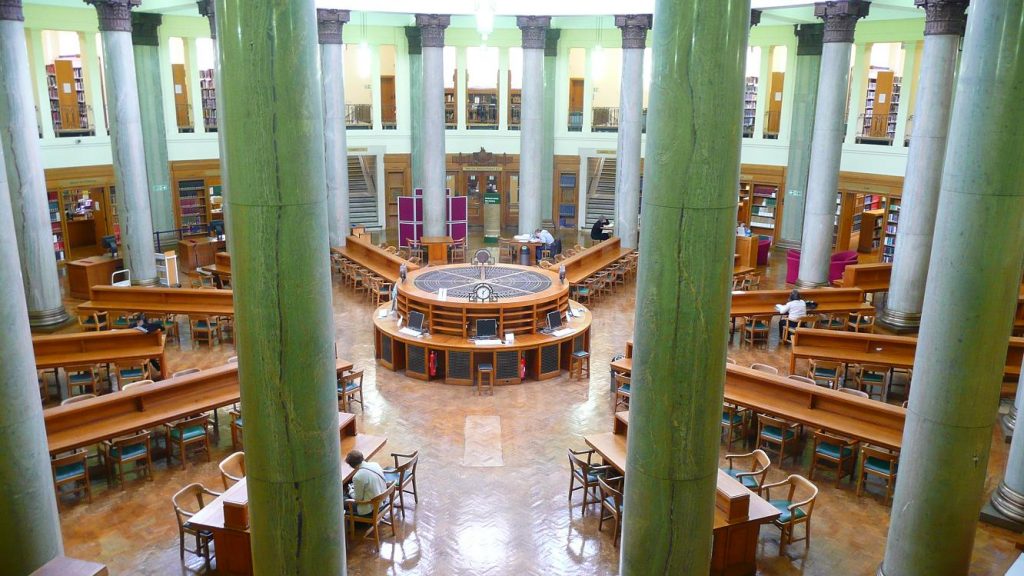I look back fondly on my time studying Classical Civilization at the University of Leeds in the UK. When I was considering my options past school, I was greatly influenced by my classical civilization teacher, Ms Simpson, to consider pursuing this subject at university. Although I had a passion for the subject and wanted to continue studying it at a higher level, I didn’t have any specific career aspirations related to the degree at the time. The three years I spent either in the Classics department in the Parkinson building or buried under books in the Brotherton Library was a formative time for me.
Now, 30 years later, I find myself frequently drawing upon my knowledge of classical civilization for a new and unexpected use. As I home educate my two eldest children, aged twelve and nine, I find myself going back more and more to my university studies to help my children learn about and make sense of the world.
Historical Context and Understanding Societal Foundations
When teaching my children about governance, citizenship, and the evolution of societies, I use examples from Greece and Rome to illustrate the development of systems of rule: from empires to republics to democracies. These foundations of the western political world gives them a sense of continuity, showing how past events sƒhape present circumstances.
History can often appear as a series of grim reminders—war, suffering, and the inevitability of change. It’s important, however, to pause in specific historical periods to gain an understanding of the human experience and recognize how similar people’s needs and challenges were to those of today. This perspective should not lead us to idolize any particular time period. I am careful to explain to my children that, while the classical period is fascinating, the era they live in now is one of the safest, most free and most prosperous periods in human history. It’s to be enjoyed, explored and appreciated.
Mathematics and Scientific Thought
Teaching STEM at home is hard as it is. So it might seem unrealistic to think that a humanities subject like classical civilization could prepare children for formal sciences like mathematics, chemistry or applied sciences like engineering or computing.
And I remember that school science lessons were focused almost entirely on drilling the class in countless equations, principles and laws. I never felt that there was any context to those equations. You simply had to recite them.
At this stage in my children’s home education, all I’m looking for is engagement with the sciences in terms of the significance of their discovery or the application, effects and outcomes on society. I want to introduce science and math from a broader, more human perspective. So we learn about early philosophers as the first scientists—curious thinkers who walked through the world, observing nature and asking fundamental questions. The Greeks and Romans were not the first or the last to engage in this practice, but classical civilization played a crucial role in laying the groundwork for many of the mathematical and scientific principles we use today.
By exploring the lives and motivations of these early scientists, my children can see that science is not just a series of formulas or experiments; it’s a human endeavor, full of creativity, trial and error, and a quest for knowledge. Figures like Archimedes and Pythagoras were driven by a sense of wonder and a desire to solve practical problems—whether it was building structures, understanding the universe, or improving the human experience. In this way, science becomes a relevant, relatable, and exciting story of discovery. If they want to learn more about any particular branch of math or science, they can choose to take it into that world of equations and laws.
Philosophical Inquiry and Moral Development
Being home educated, my kids already have to make sense of the rare position in society they find themselves in. So it’s really relevant to them to have the opportunity to engage with questions like “What is Justice?” or “What is the right way to live?”. These are not just abstract ideas; they are questions that allow my children to consider their paths as they grow older.
We’ve looked at some of the great thinkers of classical civilization like Socrates and Plato and placed their achievements into a wide historical context. Thinking critically about Socrates’ questioning of one’s own assumptions or Plato’s ideas on justice and the ideal society helps my children to think about fairness, rights, and responsibilities.
The Socratic method, particularly, is a deceptively simple approach to the world around my kids. When my children practice this, they learn not to accept things at face value and to think more deeply about their own motivations and those of others. It’s a powerful tool for developing empathy and an appreciation for diverse perspectives.
And whilst I’m not expecting my children to master the works of ancient thinkers, I do want them to be able to think critically and use this area of learning to form opinions about how to live, to build their own ethical systems, helping them develop a sense of responsibility, empathy, and integrity that will serve them throughout their lives.
—–
I’m not sure I would have felt as confident in taking the path of home education without the strong foundation I gained from my time as an undergraduate at the University of Leeds. The timeless lessons of the classical world offer guidance, inspiration, and perspective to my children 30 years later, preparing them for their futures and instilling in them a love of learning.

